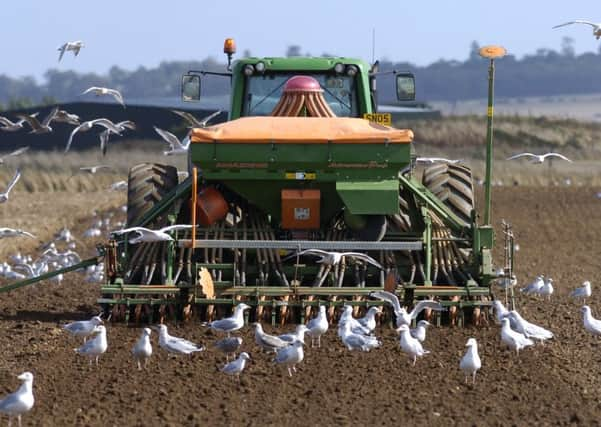Still in the dark over post-Brexit agriculture policy
This article contains affiliate links. We may earn a small commission on items purchased through this article, but that does not affect our editorial judgement.


And although the attack at Westminster might have stopped these ideas being conveyed directly to UK government ministers, as the scheduled meeting with NFU Scotland office bearers had to be cancelled, the union’s thinking, together with that of Scottish Land and Estates, was outlined to the Scottish Parliament’s rural economy committee on that same morning.
• READ MORE: Holyrood warned against sudden post-Brexit changes
Advertisement
Hide AdAdvertisement
Hide AdIn earlier discussions, emphasis had been placed on the importance of achieving the right trading conditions, with access to export markets and to labour topping the agenda.
However, there’s no getting away from the fact that some form of agricultural policy – with specific aims and outcomes along with rules, regulations and incentives will still be necessary to keep the wheels of the rural economy moving.
A move away from the status quo was viewed as not only inevitable but also likely to be of benefit to the farming industry by both organisations.
There was also agreement that the industry shouldn’t be faced with a sudden cliff edge – and that any change should be carefully managed in order to give farmers the opportunity to adapt to the new trading environment.
So it looks like there will be a period of transition from the old support measures to the brave new world in which support is refocused so that more agricultural businesses in Scotland become, as was said, “more competitive, more efficient, more market-focused” and in the process allowing their reliance on support to diminish in the long term.
But doesn’t this have a familiar ring? Are we not in the throes of just such a transition? At the moment support is gradually being moved from a historic basis onto an area basis – with the same intention of making the industry more market focused.
Advertisement
Hide AdAdvertisement
Hide AdIn fact, even as far back as the MacSharry reforms of the mid 1990s the underlying aim was to reduce reliance on support and to move the industry into a more market-oriented direction while reducing trade-distorting policies.
And so it went on: Agenda 2000; the Mid term review; decoupling; health checks – they have all been introduced with the intention of weaning the industry away from its reliance on support.
While it could be argued that the introduction of regulatory controls – either carrot or stick – to change the unfair trading practices used by companies buying farm produce, which sees producers receive rock-bottom prices, would tackle the problem at source, there’s also no getting away from the fact that farmers have been supremely adept at farming whatever support regime is extant at any particular time. It is actually a reflection of just how adaptable and flexible the industry can be that every time policy is shifted, farming practices change pretty swiftly to follow.
And, to be honest, although Brexit might be a stronger driver, there is no real reason to assume that there won’t be a similar switch of emphasis under a new transitional regime, regardless of where the final outcome is supposed to take us.
So, as long as we know the ins and out of the policies there is bound to be a tendency to make the most of the opportunities which these offer – that is a simple “survival of the fittest” fact of business evolution.
Which can only make you wonder if the only way to stop the industry moving down a new primrose path would be to announce the policy and its priorities a year or so in arrears.
Some might argue that the Scottish Government has already used their new IT system to move us in this direction, by failing to deliver support payments when we had hoped for them – and also singularly failing to give us the information which we need to work out what any of the ones which have been made are actually for.
And perhaps in maintaining a wall of silence and keeping us all in the dark this has been Defra’s cunning plan all along…